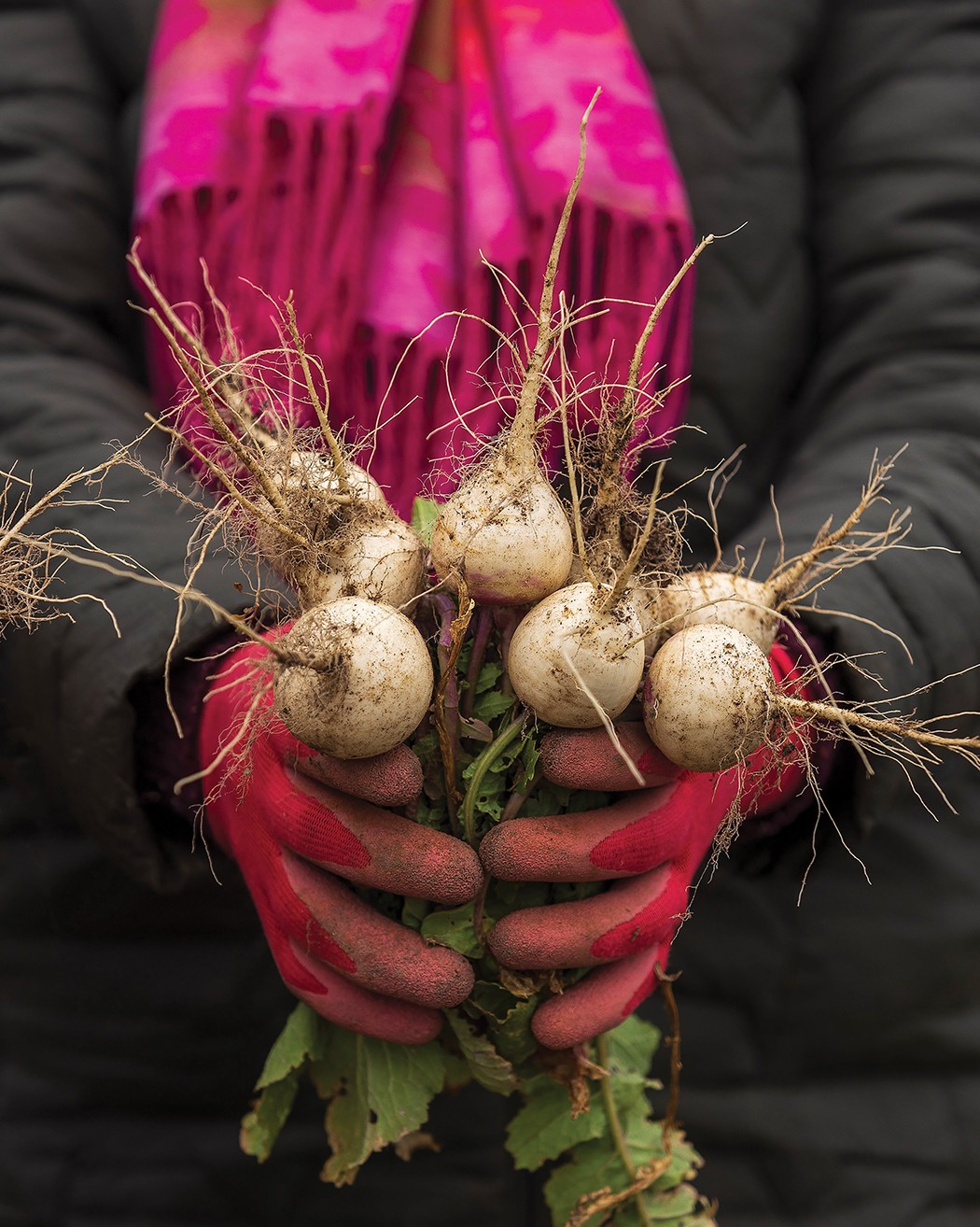
It’s officially Earth month, and we would be remiss if we didn’t highlight the incredible work happening at Good Hope Farm, an organic teaching farm and partnership project between the Town of Cary and four nonprofit partners: Piedmont Conservation Council, Inc., The Conservation Fund, NC Community Development Initiative and the Conservation Trust for North Carolina. The mission of Good Hope Farm is to support beginning farmers, preserve farming heritage, conserve land and show the connection between economic development and environmental conservation.
Originally located at the center of Carpenter, historically a thriving agricultural community, the farm has been in production for over 100 years.
“The project was launched because the region has a strong agricultural heritage, but it was rapidly losing farmland,” said Sarah Justice, the Town of Cary’s environmental outreach program coordinator and Good Hope Farm project manager. “Preserving this tract of land was not only important to our heritage from a cultural resource perspective, but it’s also the missing link between farmers providing food and connecting new farmers to farmland and farmer training.”
By licensing up to two acres of affordable plots to new and expanding farmers, as well as providing all necessary equipment and infrastructure, the Good Hope Farm project hopes to give farmers a much-needed leg up. The farm also features a demonstration garden and agricultural and nutritional educational programming for the community. Visitors can come to the farm during one of their scheduled workdays or contact the farm for a scheduled tour.
“One of the biggest barriers that I see in our region is a lack of affordable farmland,” said Justice. “Farmers come to us so they can really get started and be successful. The Town of Cary and the Good Farm Project have a social media presence, as well as a summer produce box pickup service called a CSA (Community Supported Agriculture). Both provide our farmers with built-in abilities to very easily sell their produce and support in getting their brand out there.”
Ready to eat local? Meet four “soil mates” who have all benefited from Good Hope Farm.
Farmer Meet & Greet
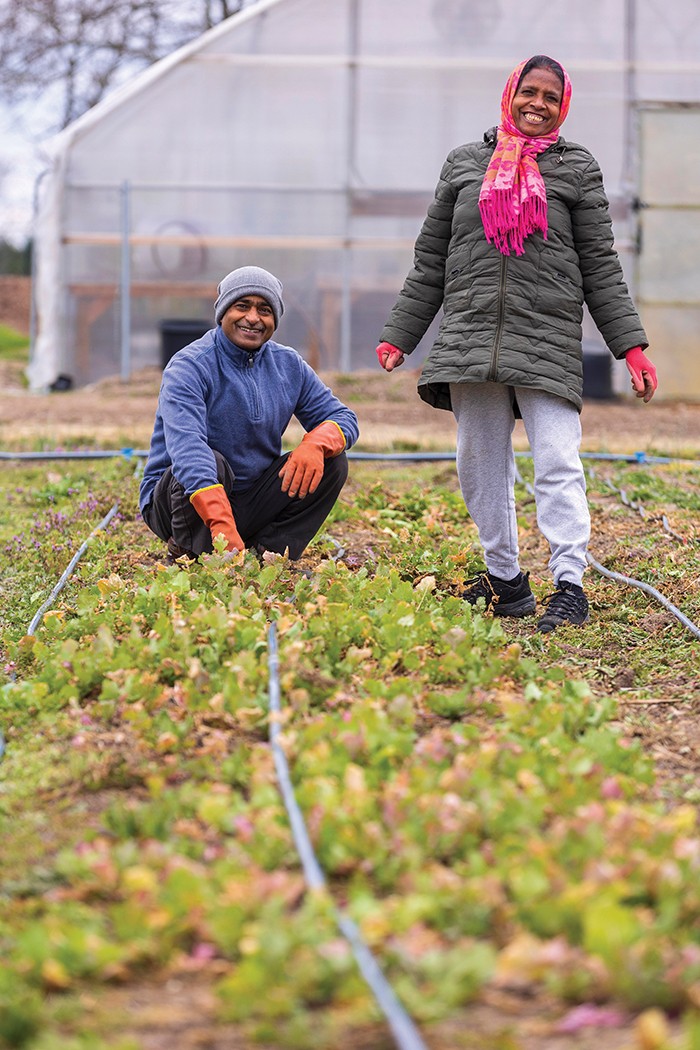
Dasharath Lohar (left) works next to his wife, Ramrati Lohain, at Natural & Local LLC, providing the community with a wide range of unique crops.
The Business: Ramrati Lohain founded Natural & Local LLC in 2020, with a mission to nourish people and the planet.
Getting Started: Originally from rural Nepal, Ramrati and her husband, Dasharath Lohar, moved their family to Cary 15 years ago.
Both Ramrati and her husband grew up on farms and have extensive farming experience. With a bachelor’s degree in genetics/breeding Dasharath worked as a horticulturist and vegetable breeder in Nepal. After obtaining his master’s degree in vegetable breeding, he completed his Ph.D. in agriculture biotechnology.
In the spring of 2019, Ramrati discovered Good Hope Farm while searching for a larger plot of land to rent.
“We would have never gotten the opportunity to farm if not for Good Hope Farm,” said Ramrati. “The farm supported us in the initial prepping of the plot, irrigation, marketing, etc. We were able to sell our vegetables to a CSA the first year when we did not have a customer base.”
What They Sell: Last year they grew close to 60 different herbs and vegetables, with a focus on crops wanted by the Asian community (many of which have never been grown locally). Their wide range of unique crops include gongura, thotakura, Desi okra, Moringa shoot, ash gourd, daikon radishes, yard-long beans and more. More familiar items include cilantro, dill, garlic, cucumbers, pumpkins, watermelons, chard and collard greens.
How To Get It: You can find Natural & Local produce at the Western Wake Farmers Market (Morrisville), Good Hope Farm (designated time and place) and Good Hope Farm’s CSA. They also sell to customers by special appointment to fulfill their needs.
Follow Natural & Local on Facebook or contact them at naturalnlocal@gmail.com.
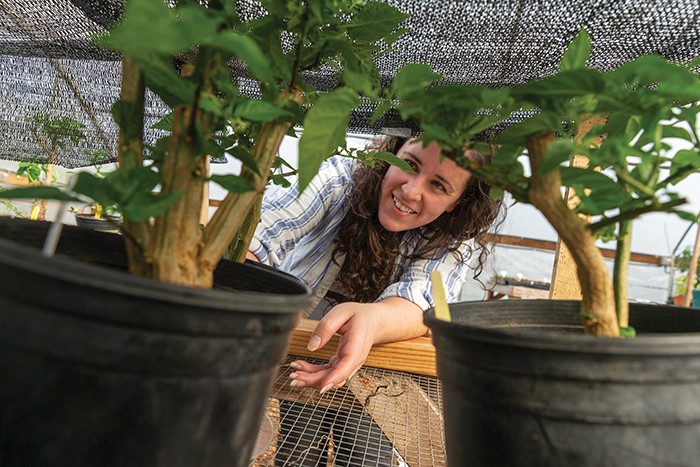
At Blue Ridge Pepper Patch, Christina Trexler adds more varieties of peppers every season — from super-hot to not-a-lot.
The Business: Christina Trexler and her husband, Jesse Bolatto, run Blue Ridge Pepper Patch — an urban farm focused on the sustainable production of hot and super hot peppers.
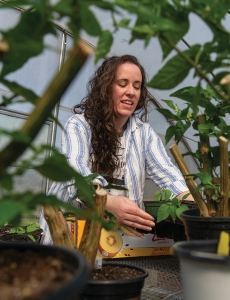
Getting Started: “We are both grandchildren of farming families, and while our education and careers took us away from a farming culture, we’ve decided to begin returning to that through our pepper farm,” said Trexler.
After starting Blue Ridge Pepper Patch in 2021, Trexler and her husband wanted to grow their operation without making a large investment in land.
“Knowing about Good Hope Farm from previously living in Cary, it was the first place we looked to when we decided we wanted to expand,” said Trexler. “While we’re new, the experience has been great! The farm provides not only the land, but also plenty of equipment, as well as support, knowledge, and expertise from the head farmer, Thomas Saile.”
What They Sell: Blue Ridge Pepper Patch is all about hot peppers, providing pepper seedlings in the spring and fresh peppers in the fall. Soon they hope to offer dried peppers and spicy condiments, like hot sauce and spicy jams.
“We grow a lot of the super hot peppers like ghost peppers and Carolina reapers, but also lower-heat specialty peppers like Gochujang king, lemon drop, fushimi, thunder mountain longhorn, and variegated jalapeno. While not organic, we make every effort to grow as sustainably as possible and incorporate sustainability into the non-growing aspects of the business.”
How To Get It: For free local delivery, order at blueridgepepperpatch.com.
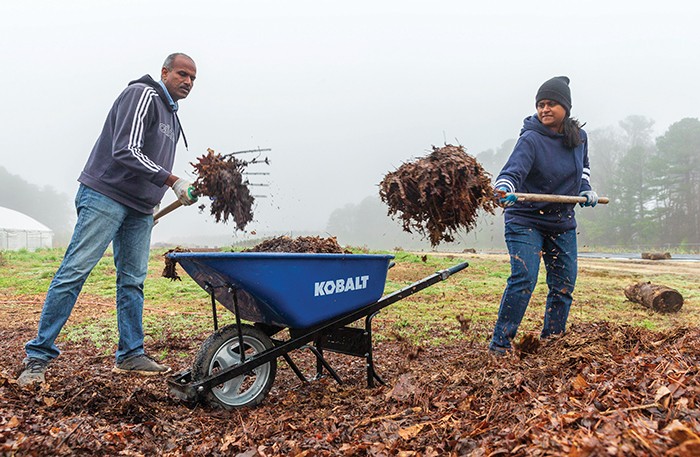
Sekar Srinivasan (left) and his wife, Dhivya Jayabal, put in the work to supply the local community with healthy, organic food at their farm, Nithin’s Organics.
The Business: Sekar Srinivasan and his wife, Dhivya Jayabal, have a passion for farming and connecting with nature. Their farm, Nithin’s Organics, aims to grow vegetables organically and supply the local community with healthy, locally grown food.
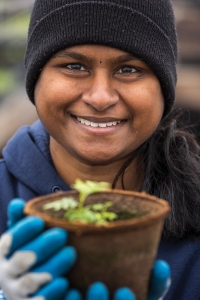
Getting Started: Both Srinivasan and Jayabal grew up in farming families in India, where their parents produced rice, corn, cotton, peanuts and a variety of vegetables. Both have over 10 years of experience growing vegetables in community gardens in the US.
“Even though this is our first year at Good Hope Farm on our own, we have already established our connections with local farmers and the community, and we are excited to continue our farming journey with the wonderful people we’ve met,” said Srinivasan. “We’ve gotten some amazing support and assistance from them along the way, and we couldn’t be more grateful.”
What They Sell: Nithin’s Organics grows a variety of vegetables to cover Cary’s diverse community needs. Offerings include everything from various Indian medicinal herbs to spinach, cilantro, radishes, garlic, onions, green chilies, brinjal, capsicum and more.
How To Get It: Interested buyers may reach Nithin’s Organics at nithtins.organics@gmail.com or follow them on Facebook.
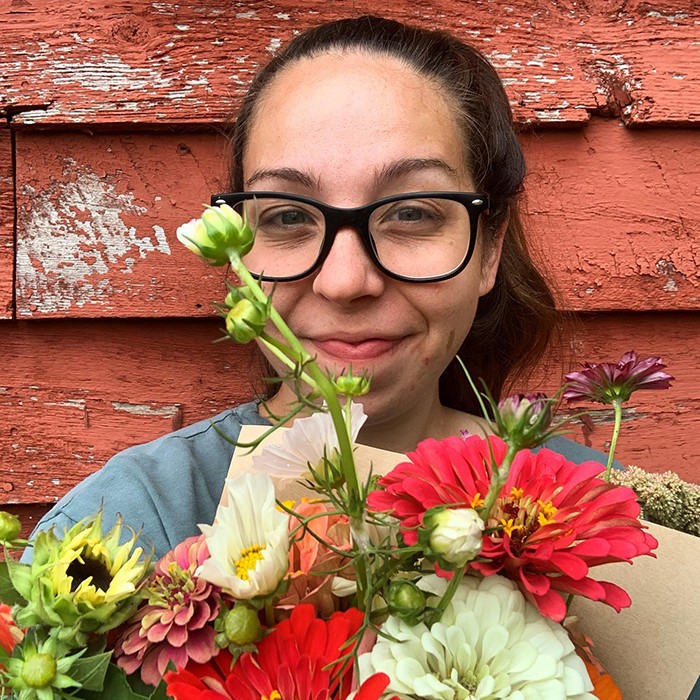
Submitted by Old North Farm
The Business: Old North Farm was started in 2018 by farmer Brooke Bennett with a focus on the cultivation of seasonal cut flowers.
Getting Started: A long-time lover of flowers, Bennett became inspired by the local flower movement while taking floral design classes. After studying agriculture and working for a local farm and native plant nursery to gain hands-on experience, she is now the proud owner of a ½ acre plot at Good Hope Farm.
What They Sell: The farm grows a variety of fresh cut flowers and foliage with a focus on seasonality and uniqueness.
“80 percent of cut flowers in the United States are imported from other countries,” said Bennett. “Old North Farm has a goal to contribute to the local flower movement with blooms that are grown with love, using environmentally conscious growing practices. Our flowers are never sprayed with chemicals, and because they don’t have to travel thousands of miles to their final destination, their fragrance and vase life can’t be beat!”
How To Get It: The farm offers fresh floral bouquets through a seasonal flower share, holiday markets and online at oldnorthfarm.com.
For more information on the Good Hope Farm Project, visit goodhopefarm.org.
- 2022 Maggy Awards: Shopping
- 2022 Maggy Awards: Services
- 2022 Maggy Awards: Lifestyle
- 2022 Maggy Awards: Restaurants
- Presenting the 2022 Maggy Awards: Best of Cary Magazine
- Local Soil Mates
- Things to Do: April 2022
- Restaurant Profile: Big Mike’s BBQ
- Worth the Drive: Zeera Indian Restaurant
- Houseplants: Your New Best Fronds
- Small Business Spotlight: The Wine Merchant
- Nonprofit Spotlight: Friends of Hemlock Bluffs
- Liquid Assets: Why is Sally So Dangerous?
- Liquid Assets: Cary Gold from Bond Brothers Beer Company
- On Trend: Copperline Plant Co.
- Garden Adventurer: The Little Tomatoes





